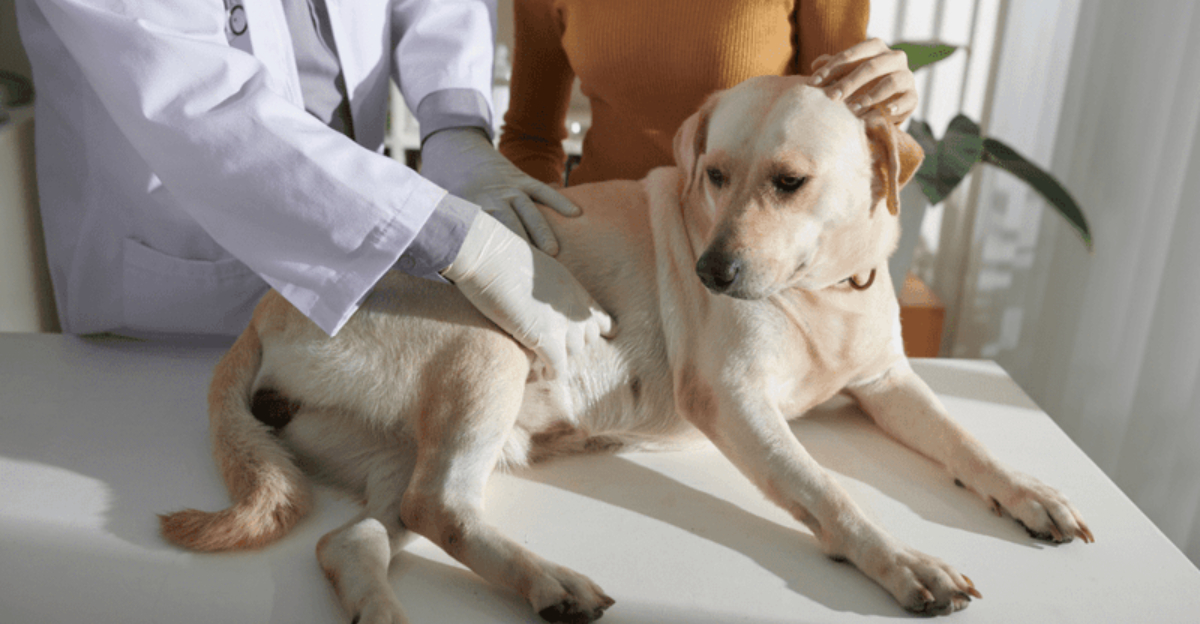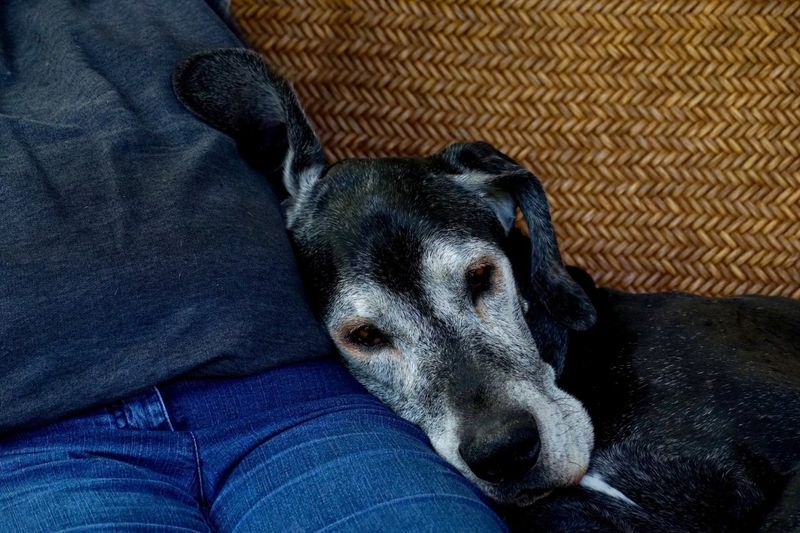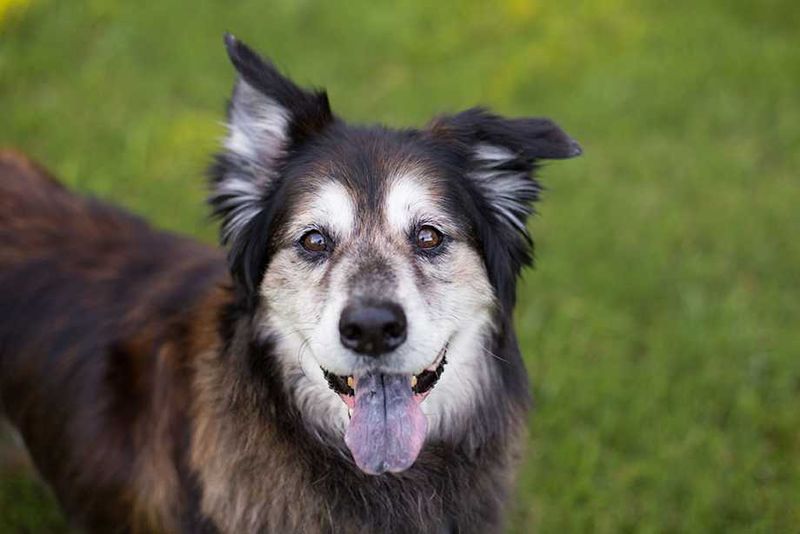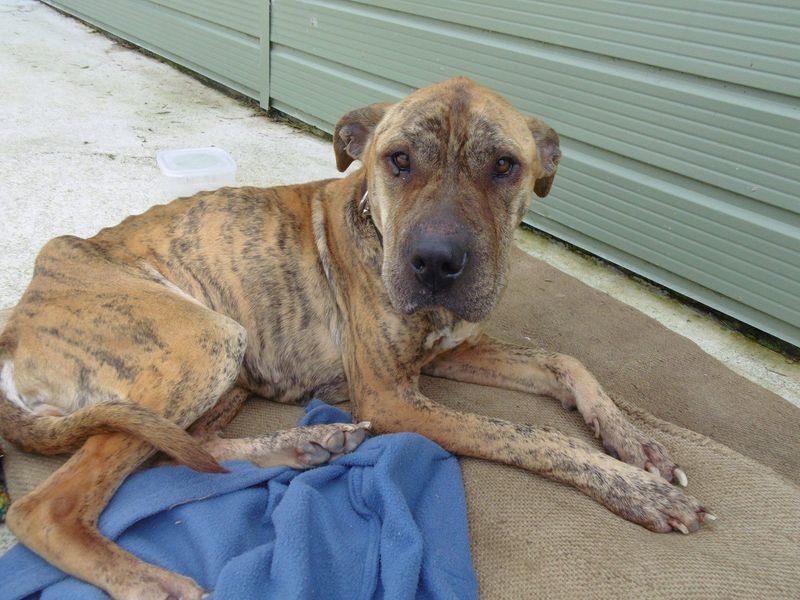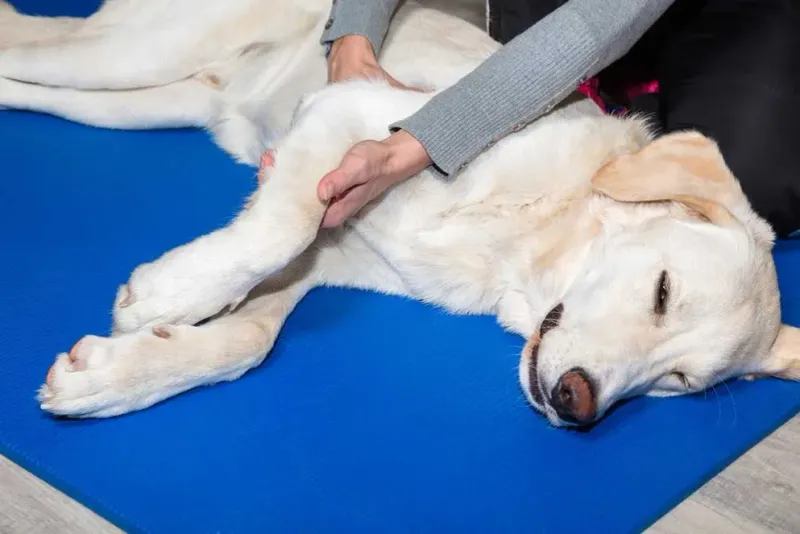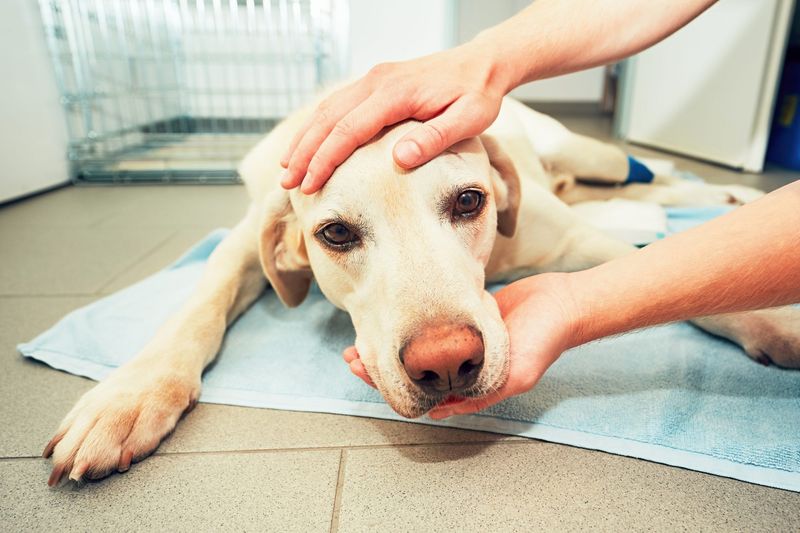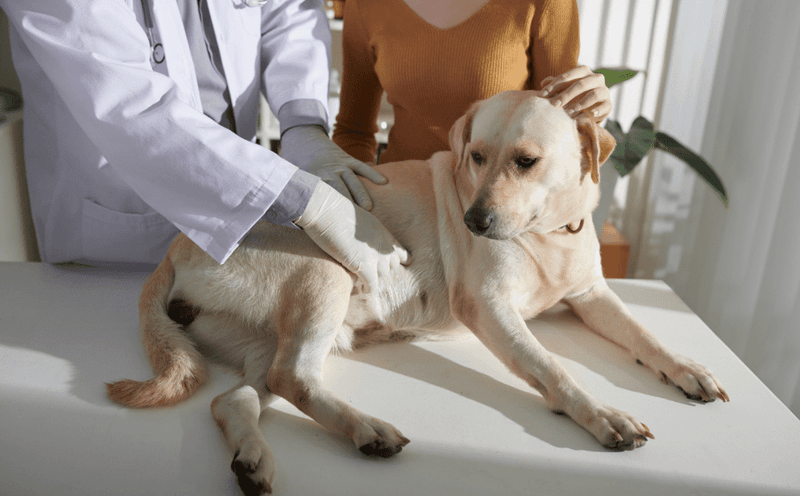As our loyal companions age, recognizing the signs of their final stages becomes crucial for providing the best care possible. Dogs, with their unspoken love and companionship, deserve our utmost attention when they reach this delicate phase. This guide highlights 15 subtle and serious signs that indicate your dog may be nearing the end of their journey. Understanding these signs can help you make informed decisions about their care and comfort, ensuring their dignity and peace.
Decreased Appetite
When a dog reaches its twilight years, one of the first signs of decline is a noticeable reduction in appetite. This change can be subtle at first, with your pet showing less interest in their favorite treats or meals. As their condition progresses, the refusal to eat can become more pronounced.
Pet owners should monitor this behavior closely, as a lack of nutrition can exacerbate their dog’s health issues. Consult with a veterinarian to explore possible causes and dietary adjustments.
In severe cases, appetite loss might signal a more serious underlying condition requiring immediate attention.
Lethargy and Fatigue
A once energetic canine companion may begin spending more time resting or sleeping as they age. Lethargy and fatigue are common in senior dogs, reflecting the natural slowing down of their body’s functions.
While it’s normal for older dogs to rest more, a sudden or severe increase in fatigue can be concerning. This may be a sign that your dog is experiencing discomfort or pain.
Keeping a close eye on their energy levels and seeking veterinary advice can provide insights into their health and necessary lifestyle adjustments.
Incontinence
As dogs grow older, they might begin to experience incontinence, leading to unexpected accidents around the house. This can be distressing for both the pet and owner, as it may signal underlying health issues.
Incontinence in senior dogs can occur due to weakened muscles, urinary tract infections, or hormonal imbalances. Early intervention can help manage these symptoms and improve your dog’s quality of life.
Consulting with a veterinarian can provide guidance on treatment options and help manage this challenging aspect of your dog’s aging process.
Disorientation and Confusion
Your dog’s once sharp instincts and keen awareness may begin to fade with age, leading to disorientation and confusion. This is often referred to as canine cognitive dysfunction, akin to dementia in humans.
You might notice your dog getting lost in familiar places or showing signs of anxiety when faced with routine tasks. These changes can be heartbreaking but recognizing them early allows for better management.
Providing a stable environment and consulting a vet for possible treatments can help maintain your dog’s comfort and mental health.
Frequent Coughing
Frequent coughing in older dogs can be a subtle sign of underlying health issues, such as heart disease or respiratory problems. This symptom, often overlooked, can indicate a need for immediate veterinary attention.
Coughing that persists, especially if accompanied by breathing difficulties or wheezing, should not be ignored. Such symptoms may point to serious conditions that require timely intervention.
Regular check-ups with a veterinarian can help identify the cause of the cough and ensure your dog’s wellbeing through appropriate treatment and care.
Difficulty Breathing
Breathing difficulties in senior dogs can manifest as labored breathing, panting, or a noticeable change in breathing patterns. These can signal serious health concerns like heart failure or lung disease.
Dogs with breathing issues may become anxious or restless, seeking comfort from their owners. Monitoring these signs is crucial, as early detection and treatment can alleviate discomfort and prolong your pet’s life.
A veterinarian’s evaluation is essential for diagnosing the cause and determining an effective treatment plan.
Loss of Interest in Activities
As dogs age, the once-exciting activities like playing fetch or going for walks may lose their appeal. This loss of interest can be a subtle sign of underlying ailments or simply the natural aging process.
Owners should pay attention to their dog’s enthusiasm for daily routines and favorite pastimes. A gradual decline in interest might indicate that your pet is experiencing pain or discomfort.
Consulting with a veterinarian can help determine if there are treatable causes and guide you in adapting their activities to suit their changing needs.
Weight Loss
Unexplained weight loss in older dogs is often a serious sign that warrants attention. It can result from various health issues, including metabolic disorders, cancer, or organ failure.
Owners should monitor their pet’s weight regularly, noting any sudden or gradual changes. A balanced diet, tailored to their aging needs, can help manage their weight.
Consulting a veterinarian is crucial to identify the root cause and implement an appropriate dietary and medical plan to ensure your dog’s health and comfort.
Changes in Coat and Skin
A dog’s coat and skin often reflect their overall health. Changes such as dullness, thinning, or flakiness can indicate nutritional deficiencies or underlying health problems.
As dogs age, their skin may lose elasticity and become more prone to infections or irritations. Regular grooming and a nutritious diet are vital for maintaining a healthy coat.
Veterinary advice can provide insights into appropriate supplements or treatments to address these issues, enhancing your dog’s quality of life in their later years.
Increased Thirst and Urination
Increased thirst and urination in senior dogs can be a sign of serious health issues such as diabetes, kidney disease, or hormonal imbalances. These changes should not be overlooked.
Monitoring your dog’s drinking and bathroom habits can provide essential clues about their health. Sudden or excessive increases warrant a visit to the veterinarian for a comprehensive evaluation.
Timely intervention can help manage these conditions, extending your dog’s quality of life and ensuring their comfort.
Behavioral Changes
Behavioral changes in aging dogs can manifest as increased aggression, anxiety, or withdrawal from family interactions. These shifts often signal physical discomfort or cognitive decline.
Owners should observe any significant changes in their dog’s temperament or social behavior. A once sociable pet becoming distant or irritable may need veterinary attention.
Understanding these changes and seeking professional guidance can help manage their symptoms and improve their wellbeing during their final stages.
Vision and Hearing Loss
Vision and hearing loss are common in older dogs, affecting their ability to navigate and respond to their environment. These sensory declines may lead to increased anxiety or confusion.
Owners can assist their pets by maintaining a consistent environment and using cues to help them adapt. Regular veterinary check-ups are crucial to monitor these changes and provide supportive care.
While these losses can be challenging, understanding and patience can greatly enhance your dog’s quality of life.
Persistent Pain
Persistent pain in senior dogs can be a result of arthritis, injuries, or internal conditions. It’s crucial to recognize signs such as limping, reluctance to move, or vocalizations of discomfort.
Owners should not dismiss these as mere signs of aging, as they may indicate treatable conditions. Veterinary evaluations can help manage pain through medication or physical therapy.
Addressing pain promptly can significantly enhance your dog’s comfort and prolong their enjoyment of life’s simple pleasures.
Seizures
Seizures in older dogs are alarming and can indicate serious neurological or systemic issues. These episodes, characterized by convulsions or rigidity, require immediate veterinary attention.
Owners should note the frequency and duration of seizures, as this information aids in diagnosis and treatment planning. Medication may be necessary to manage the condition.
Understanding the triggers and maintaining a calm environment can help minimize stress and improve your dog’s wellbeing.
Swollen Abdomen
A swollen abdomen in older dogs can be a sign of a serious condition such as bloat, tumors, or organ enlargement. This change should prompt immediate veterinary evaluation.
Owners might notice their dog exhibiting discomfort, restlessness, or changes in appetite. Quick action is essential, as some conditions can be life-threatening if untreated.
Veterinary intervention can diagnose the underlying issue and determine the appropriate course of treatment to alleviate your dog’s discomfort and improve their health.
